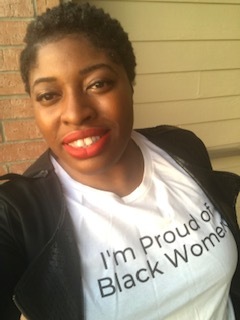LaQuanda T. Onyemeh: The Importance of Professional Friendships: WOC + Librarianship
By: LaQuanda T. Onyemeh, Co-Founder of WOC+Lib
“Have you ever thought about librarianship? Librarianship is so white...we need more POC. There are so many initiatives happening right now to recruit POC into librarianship. You should consider.”
- Anonymous
I arrived… and she was right! According to the 2017 ALA Demographic Study, the majority of librarians are Caucasian or white non-Hispanic. I know amazing white women (you know who you are) who have opened many doors for me; I am grateful for the friendships and mentorships that we have built together. I remain appreciative of those friends who used their privilege to help me advance in my career. These relationships are valuable and have been beneficial to my career and my mental health. I was able to sneak a glance into white society and their networks (thank you, white allies!)
There are times, though, when my white allies are unable to relate to my plight and frustrations of being a Women and Color “WOC” in librarianship. I mean... some tried to understand my experiences by reading literature and through having intimate conversations. To look around the room and be the only woman of color can be taxing. It’s hard to articulate the reasoning behind this discomfort with past experiences, but I know it exists. Being exposed to other WOC librarians, I feel the nature of an unspoken bond that says, “I see you, and I understand you.” No further explanation is necessary, because many of us share similar experiences.
My experience at Joint Conference for Librarians of Color (JCLC) in Albuquerque, NM in August 2018 was everything. I met many different librarians from various backgrounds. These librarians shared their experiences, victories, challenges, and daily frustrations with me. We know that while we represent diverse communities, librarianship exists within a very white infrastructure that can lead to institutional oppression. It is exhausting trying to be my best at all times and excel through the chaos. Unequal expectations in this profession contributed to my race, class, gender, and other intersectionalities I occupy. I've heard from many WOC in this profession who have told me, “You have to work twice as hard and cannot afford to mess up.” And, “You can't afford to slack because you're black.”
These are words that have echoed throughout my childhood, and now, in my career, “Everyone is watching, and your reputation will follow you.” I have seen amazing WOC librarians who have been stifled, silenced, underpaid, and, at times, disregarded in this profession, despite their accolades and accomplishments. These are the very same women whom I look up to and are amazed by their immeasurable contribution to galleries, libraries, archives, and museums. It is not only discouraging but an unfortunate reality that many of us face. It forces me to think...are we cherished and celebrated enough in this profession?
Why are WOC Friendships Important in Galleries, Libraries, Archives & Museums ?(G.L.A.M.s)
Having access to WOC librarians who are able to give advice, offer support, or create a safe place to vent is important. It can be difficult operating in prominent white spaces daily without an opportunity to “just be.” My WOC sisterhood in librarianship offers a space for me. It promotes my creativity, reinforces my black excellence and my black girl magic at times when I think I have misplaced it.
In our workplaces, there may be a collective group of POC who are represented in both leadership and middle management. However, there are most likely no persons of color in upper-level management and maybe one or two who occupy a middle management role or identify as a library worker. Which often can make us feel isolated and alone; we can feel forced to code switch. We can feel the need to be present in all white spaces and having to deal with both macro and microaggressions that target our intellect, identity, and more.
It is important to have an active community of support from WOC/POC in academia. The connections and friendships allow opportunities for collaborations on projects, publishing, and presentations that allows us ( WOC/POC) to advance in our careers. Together, we can celebrate how we obtain leadership opportunities, “be seen” in our profession, acknowledge our work, and dedication to librarianship.

